Key Takeaways
- Opt for cameras with wide-angle lenses to effectively capture property details.
- Aim for high-key lighting.
- Collaborate with agents on must-have shots and music to ensure video aligns with their vision.
- Use sliders or Steadycams for dynamic shots
- Consider 360-degree cameras and drone shots based on demand.
- Prioritize post-production quality with proper music, color grading, and editing for a professional finish.
So, you are interested in producing real estate videos?! You are either most likely in one of two boats:
First, you have a camera and are exploring how to make more money “as a business owner first.”
Or, you have your eyes set on a new camera with amazing capabilities but an eye-watering price tag, too, and you are trying to wrap your head around making more money to rationalize the purchase.
Either way, this article will help overview the whole process!
Table of Contents
What should a real estate video consist of?
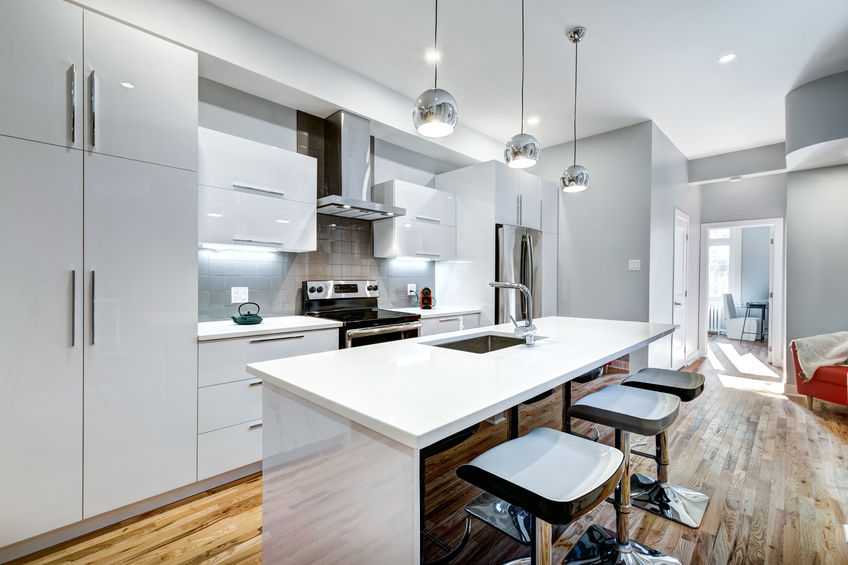
Easy, the property that is being sold, duh!
But you are shooting not just a property but someone’s product. This product has features, design, and character. It is your job to capture that.
In what way, you may ask? In any way you see fit. See, you are the expert here. The agent knows nothing about cameras or how video is produced. So you are the visionary!
However, you do want to make sure that you go over a “must-have” list with the agent before shooting to ensure that you capture everything (from hero shots to detail shots) the agent sees as a necessity, not just you.
Also, the music should be determined before a shoot with the agent. I’ll discuss music later in this article.
If you do these two things, you will eliminate many headaches before they arise!
How to capture the house in its entirety
The hero shot is always the front of the home, backyard, or whatever is more sellable. An agent will let you know!
This hero shot can be done any way you want, as the creative control is yours.
Get creative! Time-lapse, drone, steady-cam! 100% up to you!
Real-Estate Videography Equipment

Let’s first think about the median.
As a general rule of thumb, you should always know where your creations will end up. This will help you determine the gear needed for the shoot.
Most real estate agents will market their listings on the MLS website in the States and on social media platforms.
With that being said, people will be viewing these listings mainly on mobile devices, so a resolution of 1080p is the benchmark for such a small screen.
Anything more should be considered “for the time being” as wiggle room in post-production. So, export your final product in 1080p, even if you shoot in 2k or 4k.
Now, suppose you plan on getting into photography. In that case, most DSLRs with interchangeable lenses have a bracketing feature, and their megapixels are suitable for all online users, mainly where these listings end up.
Camera: How to Choose a good Camera for shooting Real-Estate videos
That is easy. You can produce real-estate videos and photos as long as the camera shoots a minimum of 1080p and shoots stills with megapixels in the teens!
Check out popular brands such as Sony, Canon, and Nikon. However, You will find that Sony is currently the market leader.
Most real estate filmmakers use mirrorless cameras with a full-frame sensor.
This will give you maximum adaptability to ever-changing conditions such as low light and wide field of view with the appropriate lens, which brings me to…
Lenses: The best focal length to shoot real estate videos
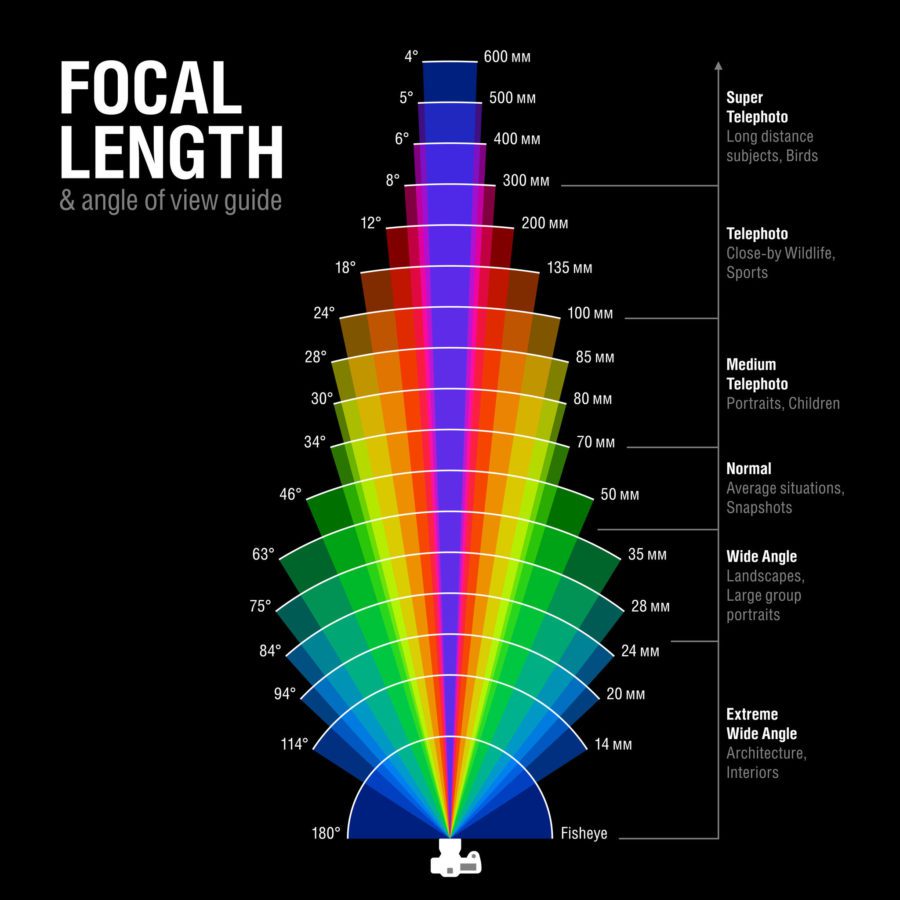
Remember, you are shooting a property first, and what is the number one thing that all properties have in common? They are never the same!
Each home you enter will have its weird corks. Some were built in the ’40s, some in the ’70s, and some are modern-day.
Each era of architecture had different ideas, and frankly, the size of people and their spaces have changed over the last 100 years.
So, think basic here. You know each house will have a certain level of uncertainty, and first and foremost, you are there to capture a home in its entirety! A versatile lens is KEY here!
The best lens for this job will be a Canon 16-35mm 2.8 or a Sigma 16-35mm 1.8.
Pro-Tip: how wide is too wide?
Remember, a little efficacy is involved when shooting with wide-angle lenses. The wider you go, the more the image is distorted, making the room feel much bigger than it is.
Protect yourself, and do not allow agents to pressure you into using a lens that is so wide that it represents a room. Misrepresenting a room can lead to claims of false advertisements, something you want to avoid.
Stabilization: Tripod, slider, or a steady cam for real-estate video?
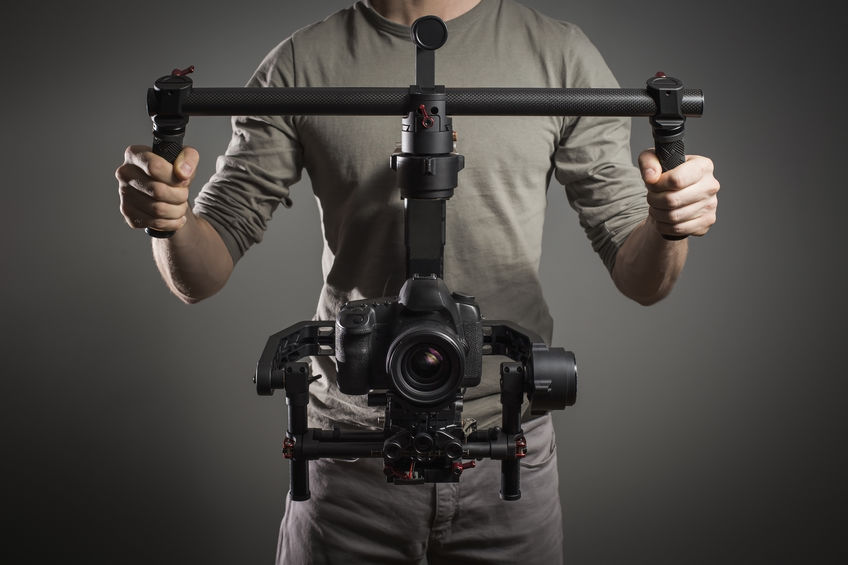
Think about it like this…photos are snapshots, and video gives a more sophisticated look at the product before someone arrives. It gives a more real sense of how the space truly is before a customer can be onsite.
So, currently, the correct answer here is no tripod; get the camera moving. Steady-cam or slider will give the viewer a better sense of space and being there than a tripod.
Move the camera through spaces and show scale wherever possible!
Pro-Tip: Incorporate speed ramping for the added wow factor!
360-degree video cameras
I say stay out of this space.
If you will offer 360-degree video, offer it and own it, and don’t overlap video and 360-degree cameras unless you are a Real estate-focused entity.
The space is flooded with guys who do 360 videos and have specialized equipment.
If you are hell-bent on getting into it, however, then, by all means, do it.
Be a business owner first. Be smart here, and don’t spread yourself too thin.
Drones: Are drones a must-have for real estate video?
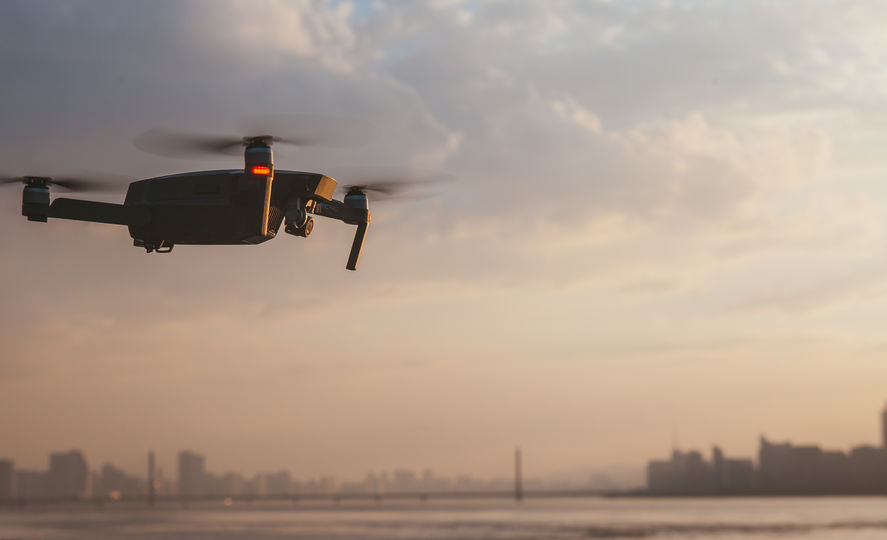
I would say yes.
Most turn-and-burn real-estate gigs are fast-paced, and some agents don’t want to pay the big bucks for a fully well-thought-out video. The best substitute for that is a fantastic drone shot.
A drone captures so much and says so much about a neighborhood, the home, and the geology around the home. However, ensure compliance when flying your drone and be careful; this is the most significant risk factor during the shoot.
Lighting: What lighting should I use for Real Estate videos?
Lighting is a fascinating subject matter when it comes to real estate videos. This boils down to one thing. Clients’ budget as always!
With photoshoots of homes, photographers use bracketing, which allows for multiple shots at different exposures to be combined to get lighting even between the outside and inside exposure of a home.
With video, we don’t have that luxury. From a technical side of things, you can overcome this in two ways:
1. Use a pre-programmed slider shot
The first is a locked-off pre-programmed slider shot to show movement.
You can then shoot two identical slider shots, one exposed to the room and one exposed to the light from the windows.
In post-production, you can mask off the underexposed inside of the home and combine both shots to create an equal-exposure slider shot.
2. Underexpose the shot
Another less technical way of pulling off equal exposure between outside and inside shots is to shoot everything with a few clicks underexposed.
It is not to the point where you lose exposure to extremely dark areas, but it is enough to give the outside a fighting chance in post-production by raising the exposure levels and masking off the windows in the post.
This technique works best when the home is welded due to its architectural design and a camera with a full-frame sensor, allowing you to be more radical with your ISO choice.
Tips for purchasing video lights for real-estate videos
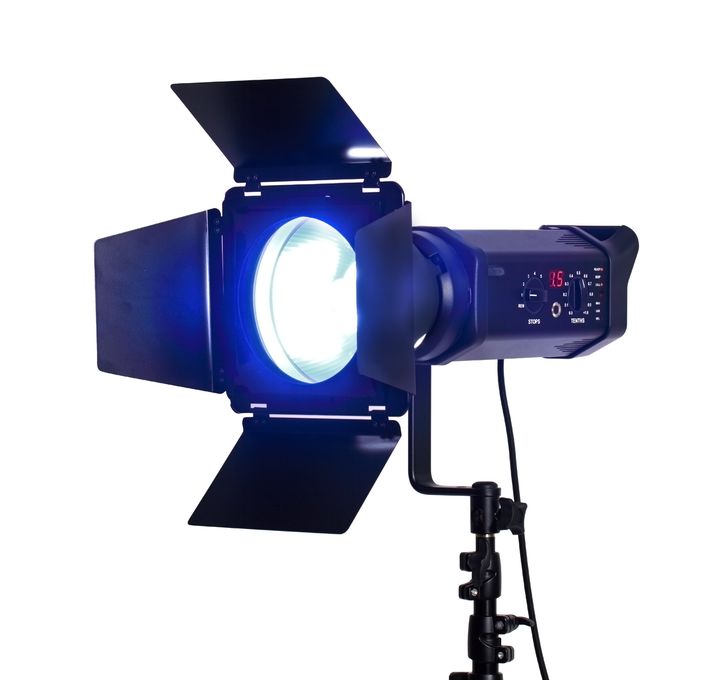
If you plan on purchasing lights, remember that you were battling the sun’s power for outside exposure.
Check out our article How Many Watts Do I Need for Video Lighting? where you learn more about how to battle windows with continuous lighting.
99.9% of your real estate clients will not have the budget for those high-end lights.
However, with the abovementioned method of exposing more closely to outside exposure, bringing in lights will only help narrow that usability gap.
If you’re interested in budget-friendly lighting, read our guide to the 8 Best Budget-Friendly LED Lighting Kits For Video.
Music: Tips on choosing music for real estate videos
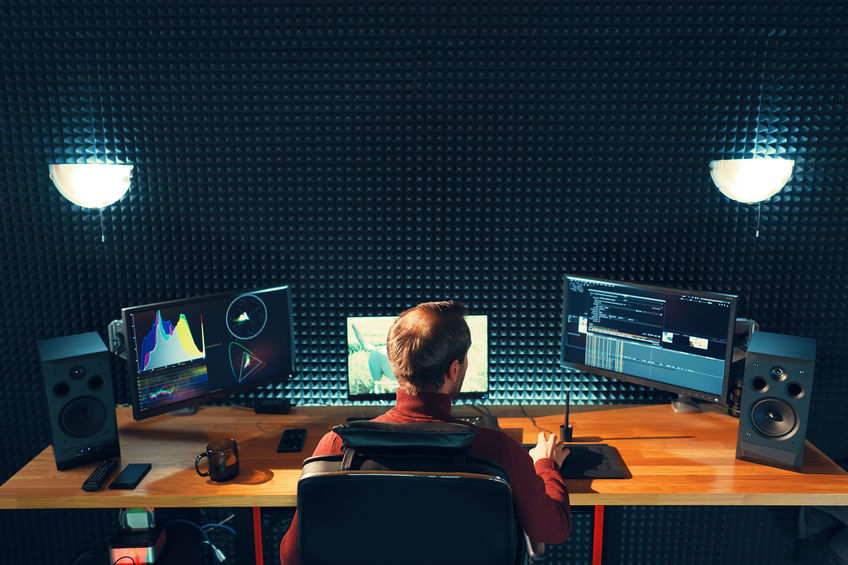
As mentioned above, I am a firm proponent of ensuring you have a list that your real estate agent has given you precisely based on what they want to be shot.
I also believe that music should be chosen before shooting the home. Let the agent have a say in this, as their vision may differ from yours.
If you’re new to royalty-free music, read our guide Royalty Free Music For Video. What, Why, Where, How?
Spend a good chunk of your pre-production time on finding the correct music.
This sets the tone for the home, the neighborhood, and the agent selling the house!
Color Grading: What look to go for
Unless the realtor has a specific look that they are going for, the best way to move forward is to shoot in a color grade that is light, crisp, and airy.
Think about a high-key lighting look. This is the current standard for professional videos and photos in this space.
The potential buyer of any home wants to see the product represented as almost heaven, with no noticeable imperfections in the images.
You can read more about color grading and color correction here.
Editing Software
Editing software is someone’s personal choice. I dare not tell you which software to use; however, I will suggest the top three, in my opinion.
Check out Final Cut by Apple and Premiere by Adobe. Also, DaVinci Resolve by Blackmagic Design is great for editing and color grading. Here’s a guide on how to get started in DaVinci Resolve.
I’m sure you have heard those names before, and chances are you most likely already are in one of these ecosystems.
Here’s an article with great videos to get you started in Premiere Pro.
If you are starting from scratch, check out these free video editors.
Can I shoot real estate videos alone, or do I need an assistant?!
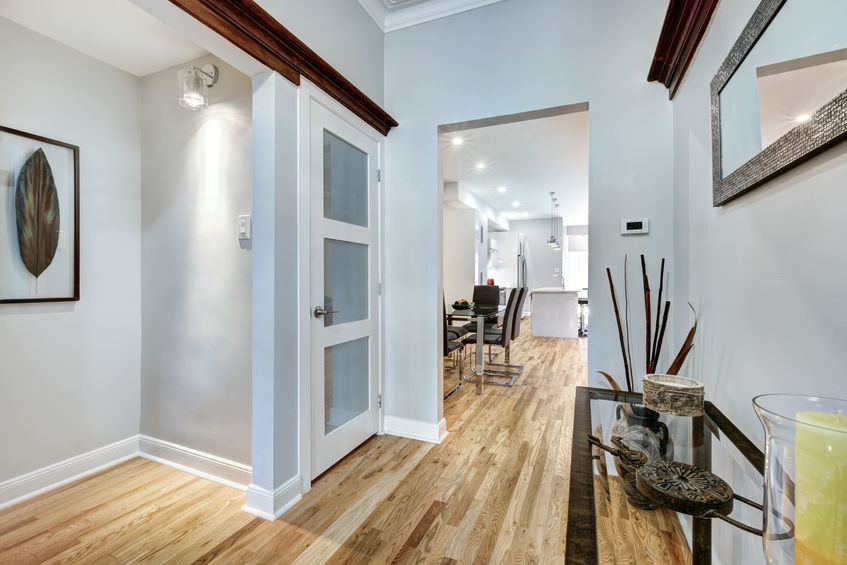
Shooting real estate jobs is relatively easy. It should only take one individual approximately 1 to 2 hours to shoot an entire home up to 2999 square feet—or less if it is just a property.
Now, you may find that real estate agents want to shoot the home and local amenities in the area to make more of a lifestyle video.
If this is the case, you should still be able to shoot this alone. However, it is much more work, and your price should reflect that if an agent requests more than just the home shot.
How to get your first real-estate video client
Getting your first client may seem daunting. How can you get a client if you’ve never shot a real estate video before?
Well, you will have to offer your service for free to one agent to get one under your belt.
You may offer up to three free homes with different agents or a single agent to help you control your style and process.
Find an agent online via social media or their direct website and email them asking them if they have a home they would want to be shot for free!
Include other examples of your work and tell them you are trying to break into the real estate market and would love an opportunity to shoot a listing for them free of charge!
How much to charge for a real estate video
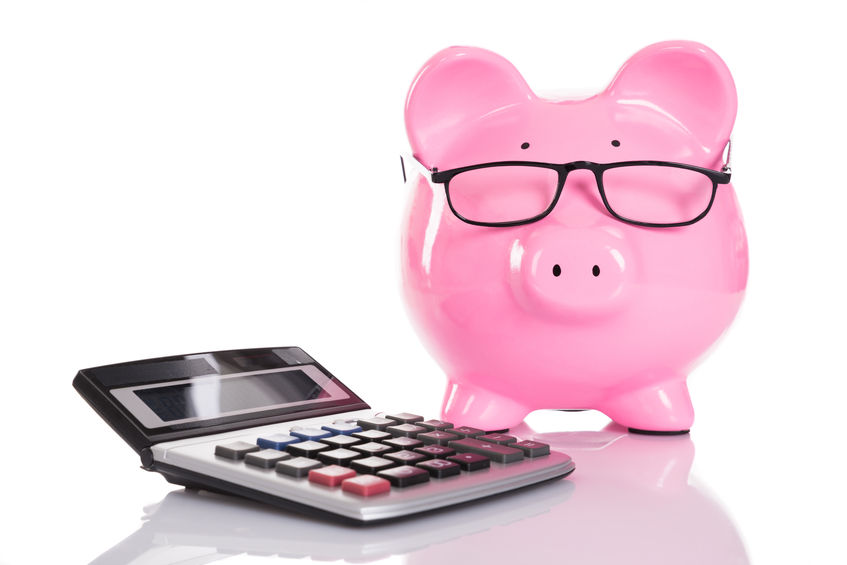
The toughest question for any artist is how much should I charge for my work?!
There’s no right or wrong answer here; however, a good starting point would be to compare yourself to the competition. Explore competitors’ websites, see what they charge, and watch examples of their work to grasp what your local market is accustomed to.
Also, know your market size and potential! This entirely depends on the area you plan to shoot in and the average price of a home.
A bigger market like Los Angeles will be much different than a small coastal community like Brookings, OR.
Did you know that agents make an average of 6% of the home’s cost, which is split between the buyer’s agent and the seller’s agent?
So unless your buyer is the same as your seller agent, the real estate agent only makes 3% of the home’s total price. That 3% typically includes expenses such as photographers’ fees, video fees, and any other marketing fees.
If you know what the house is going for, you can use this information to estimate the profit the real estate agent will bring home. Now, how big a slice of that do you want?
What other things should I be mindful of from a business owner’s standpoint?
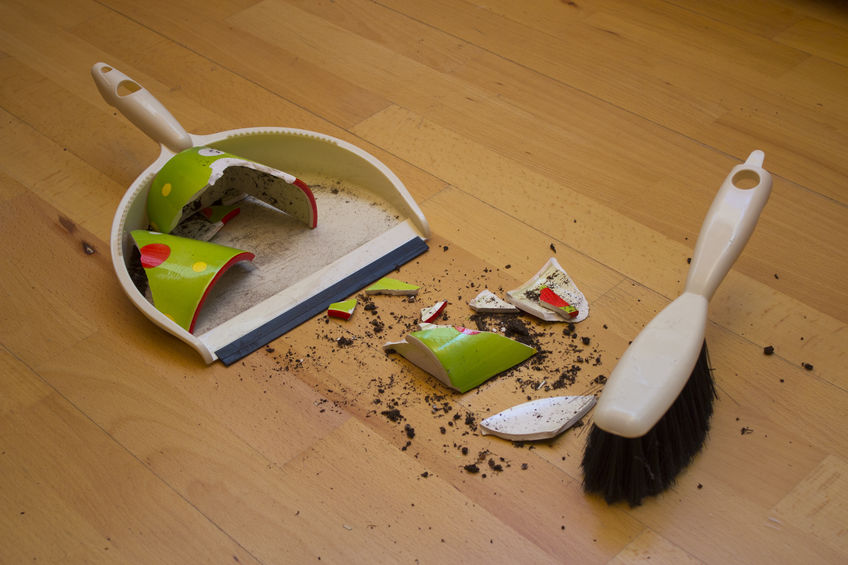
One thing you should have to consider is getting insurance for your small videography company.
You enter a premise in a gray area between being sold and being purchased by another party.
If anything happens to yourself or anything on the property, you can get into some quick legal issues that may be a significant pain in the butt.
I have had real estate agents show me the work of a new local videographer who boasted about their quality and low prices. After inspecting the footage, I pointed out relatively quickly that the individual was flying a drone in the house.
I then asked the agent what happens when the drone crashes into those oak cabinets and destroys their finish. Who is responsible?
The agent quickly looked at me and realized that paying me a little extra was worth the risk mitigation.
Closing Thoughts
I hope you found this guide to filming real estate useful.
I also recommend that you download the FilmDaft free production equipment packing checklist. Print it out and use it whenever you go on a shoot. That way, you won’t forget any important gear.
If you’ve got any questions, let us know in the comments below.
Up Next: How To Remove Yourself from Mirrors In Real Estate Videos & Photos

